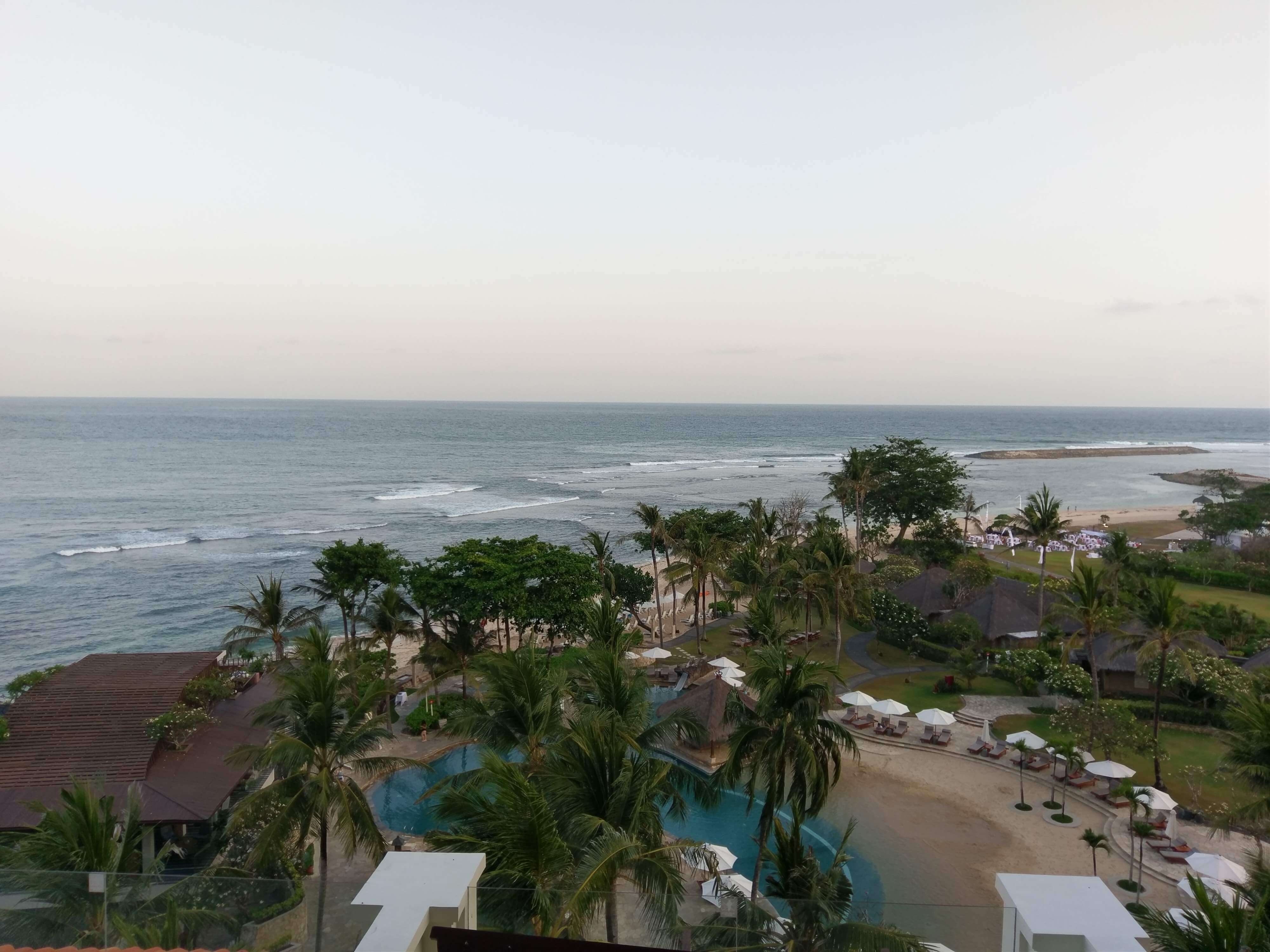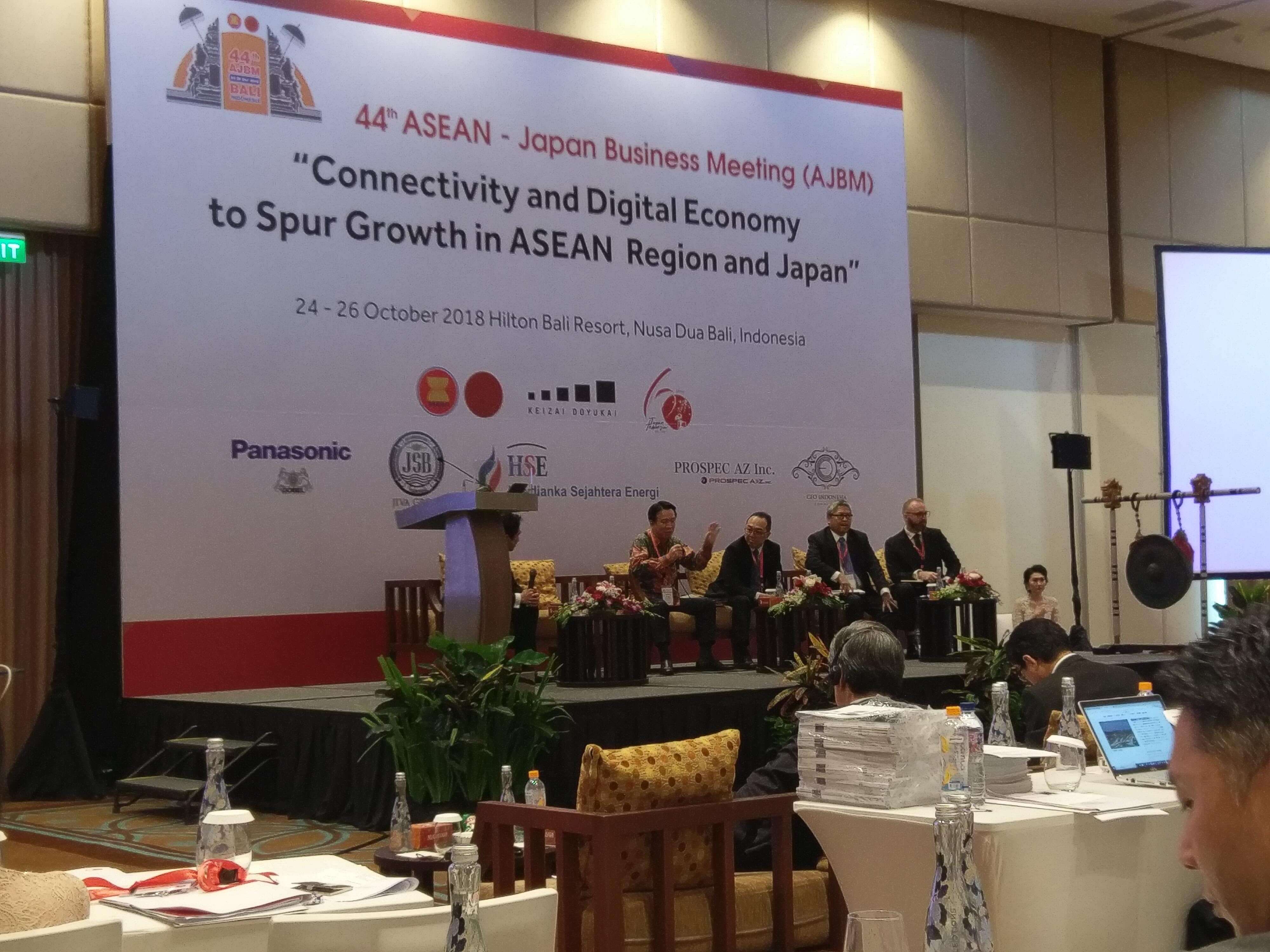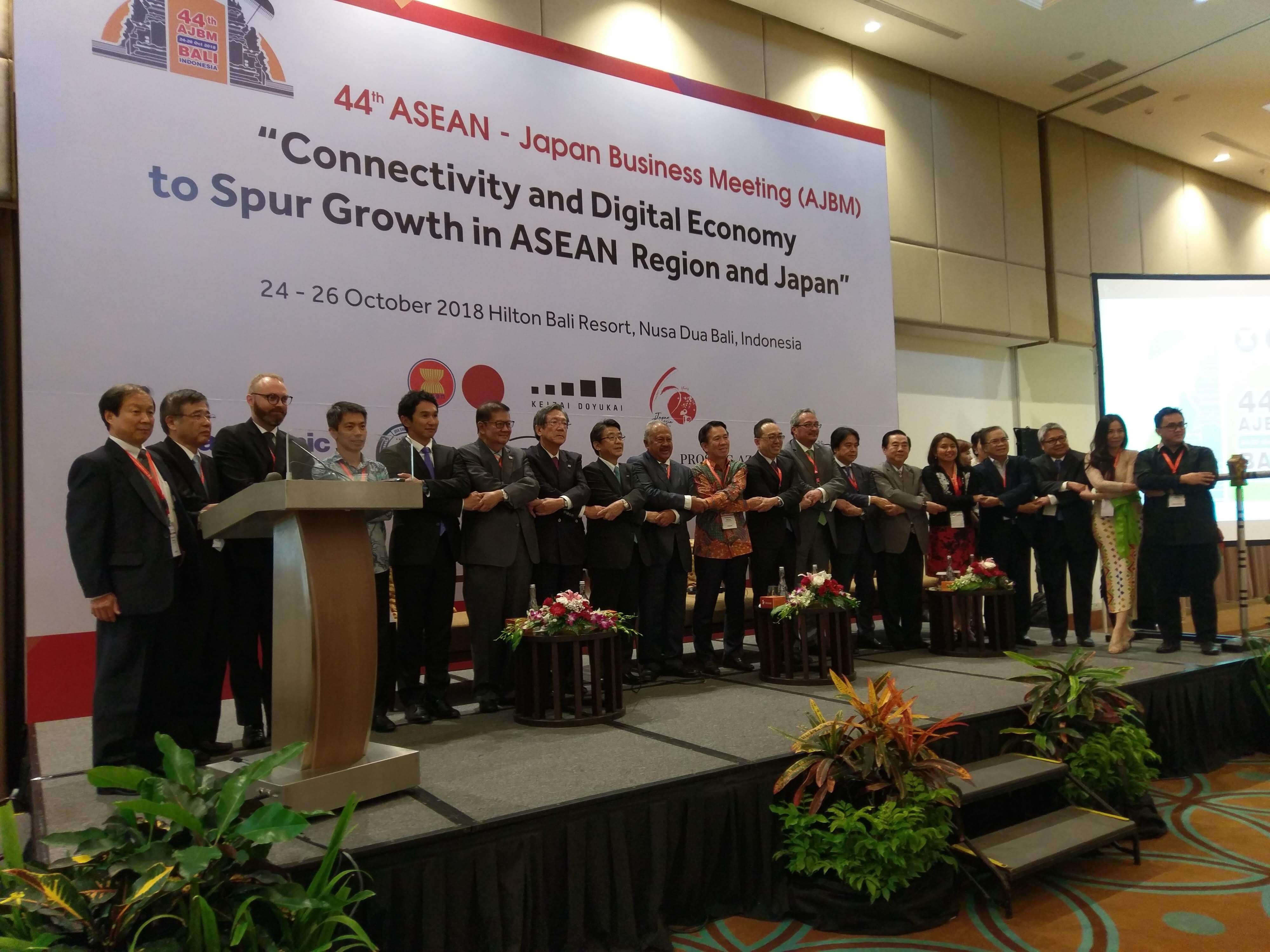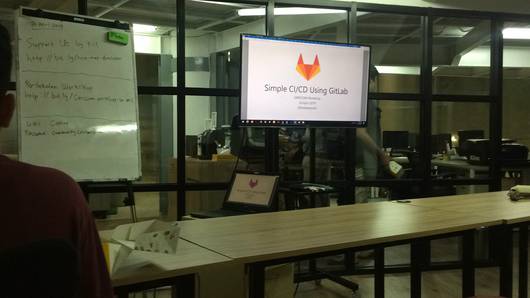ASEAN-Japan Business Meeting (AJBM) in Bali
This year marks the 44th ASEAN-Japan Business Meeting, which was held in the Hilton Resort in Bali from the 24th to 26th of October 2018. I took this opportunity to visit the wonderful island of Bali and participate in the meeting.
There are many flight coming in to Bali's Denpasar, and I took a connecting flight from Kuala Lumpur via Air Asia.
This is the view from my hotel room at Hilton Resort, Bali, which is also our
venue for the meeting.

The theme for this year's is "Connectivity and Digital Economy to Spur Growth in ASEAN region and Japan"
What is it
The AJBM is a "multilateral private-led forum between Japan and the ASEAN" which started in 1974 under the initiative of the Keizai Doyukai. The annual meeting promotes economic exchange among private sector business towards the stability and development of ASEAN and Japan.
There were multiple plenary sessions for this year's meeting, and although all of the plenary sessions are interesting topics for discussion, the main session that I wanted to listen on to was concerning the digital economy. What are Japan and the rest of ASEAN are up to now days, and what are the problems they are currently facing?
3rd Planery session, the Digital Economy
The planery session was moderated by the Mr. Mashita, CEO of V-Cube. I'll write down the points I find interesting during the planery session, hopefully able to piece enough information to give us a broad overview of the current status of ASEAN and where it will be heading.
This session had four panelist from the different countries in ASEAN, including Japan:
- Tetsuro (Ted) Akagi, Senior VP NEC Corporation and CEO of NEC Asia Pacific Pte. Ltd.
- Mamerto E. Tangonan, Chief of Party, Chemonics International Inc, Philippines.
- Tomas Pokorny, CEO and Co-Founder of Pi Pay, Cambodia.
- Hew Wee Choong, VP Investment and Industry Development, MDEC, Malaysia.

Agri-food innovation
This is an initiative by NEC called DX approach to disaster risk management and agri-food productivity innovation. NEC regards the explosive growth of human population which is estimated to grow to 9.7 billion in 2050 as an important issue to be addressed. NEC also showed case a few Proof of Concept (POC) projects that they are carrying out with ASEAN member countries, such as forest fire identification system they are currently spearheading in Indonesia.
Digital Free Trade Zone (DFTZ)
MDEC explains that the aim of the DFTZ is to drive export of Malaysian SMEs via e-commerce and to establish Malaysia as a regional e-commerce hub. This also covers the trade fulfilment part all the way to the end delivery which will include cross border trades.
MDEC says there will be many business and investment opportunities: First, the obvious companies with their own physical brands and digital products that can be sold via e-commerce, digital contents companies, e-commerce plaform companies, logistic companies, infrastructure and other supporting services like backend office.
E-Payments in the Philippines
The Philippines government are pushing for more payments to be done via e-payments, with a target of 20% of total payments to be done in e-payments from the current 1.03%.
Here fintech brings an important role: Studies have shown that digital technology can cut the costs by up to 90%, allowing finance companies to further invest to increase their reach to rural areas. Most importantly, digital payments have been found to improve quality of life, e.g easier access to better healthcare.
Within ASEAN, Thailand's ProngPay has the biggest uptake, with credit given to the government as a main driver for usage of e-payments.
Pi Pay in Cambodia
Pi Pay, pioneering e-payments in Cambodia has an interesting story. Only 15% of the population has a bank account, which underscores the challenge it faces to bring "FinTech" into the country.
But at the same time there is roughly around 1.7 SIM cards per person in the country, showing a high penetration rate for mobile usage, so solutions in the financial technology sector should be based around this mobile usage which are already prevalent in Cambodia.
Q&A session
The most interesting part of planery the session was the Q&A. The moderator threw a few questions to the panel to get discussion going on some interesting subjects.
How do you think the United States vs. China trade war is affecting you?
- Mamerto E. Tangonan: The Philippines has been mostly US based, but China is coming in a big way. An example is the payments systems, and China based companies brings in their own QR codes. Now we have QR codes which are different for each vendor, and having many different QR codes in a shop for different payment systems is troublesome. So we need a single body to set standards for these kind of things.
- Tomas Pokorny: We need to benefit on the situation, by using the influence of both countries in a smart way. China or USA might be trying to influence us now, but ASEAN might be the one influencing United States in the future.
- Tetsuro Akagi: We must be careful on how we handle the data not to be manipulated by either countries. NEC policy is to do open innovation, so our aim is also to support SMEs in ASEAN.
- Hew Wee Choong: Following up on what Mr. Akagi said, Japan has been a strong supporter and big investor in our multimedia supercorridor project, for example NTT has been one of the first multinational companies to setup shop. Companies like Japan can balance the risk that these trade wars bring us. With or without the trade war, we can't deny that ASEAN is a market of 600 million which is half of China.
On cybersecurity, data security and privacy
- Mamerto E. Tangonan: The central bank has pushed out regulation to make it compulsory to implement security steps to protect customer information in the Philippines.
- Tomas Pokorny: Same goes for Cambodia. But I still think it's understated and not taken up as seriously as it should. It's up to the regulators to push for all industry players to take serious steps. We also need to be careful on the so called specialist that approach us all the time, as they might be black hat hackers wanting to social engineer their way into our organizations.
- Tetsuro Akagi: We have the technology like facial recognition to restrict access and keep our data safe, but it means nothing if we do not put emphasis on instiling integrity within ourselves.
- Hew Wee Choong: The Malaysia's Prime Minister's Office has a unit that directly monitors and receives reports on threats and the cybersecurity situation of the country. We are taking it seriously at the highest level.
Concerning the Indian Adhaar system: Will there be a similar trend in your countries?
- Mamerto E. Tangonan: The congress just enacted a law to keep track of citizen identity and everyone is required to obtain one. It only tracks 11 data points, and only identifies the individual so there is less incentive to hack. The individual needs to give consent before a third-party can access the central database.
- Tomas Pokorny: This is an opportunity for a public-private partnership, but the government needs to act as a supervisor, to make sure the system is not abused.
- Tetsuro Akagi: We are the platform provider for Adhaar system, so I can't comment much as I can't disclose much details on it, but security has been and is an utmost priority for us.
- Hew Wee Choong: Our minister has announced a few weeks ago a National Digital ID initiative which is an opt-in digital identity system.
In conclusion
The hot topics between Japan and ASEAN are connectivity, e-commerce, and digital payments. In terms of e-commernce, hurdles still remains for the hardware parts of the equation, e.g physical connectivity and customs. For payments, the low uptake of bank accounts for countries like Cambodia for example will remain a hurdle that needs to be overcomed.
I think we will continue to see superb growth in these sectors, and there will be more opportunities for supporting industries within these two economic blocks, as Japan and ASEAN has realized that digital initiatives, and connectivity as the next big step.
Unfortunately we could not see other representatives from other ASEAN countries talking about their own markets.
What is particularly interesting with the ABJM is that participation is by invitation for members of the respective local commerce associations with connections to Japan.
For example, Xoxzo Inc participated by virtue of its membership of Malaysia-Japan Economic Association (MAJECA) and by nature members of these chambers of commerce are persons which have experienced working, studying or doing business with Japan. From the Japan side, sponsorships and initiatives from associations such as Keizai Doyukai adds value by allowing input and connections to leading business executives in Japan.
The yearly ABJM gives insights on the general direction and business interests of the different ASEAN member countries and how they can collaborate with Japan. I look forward to participating in these meeting again in the future.




